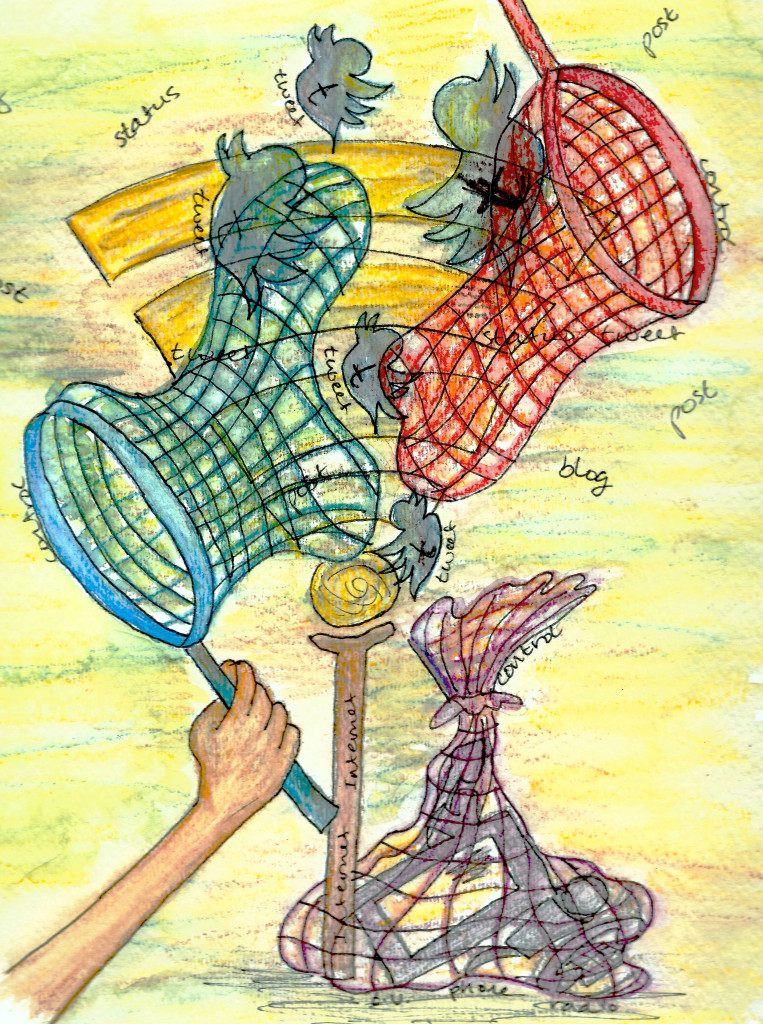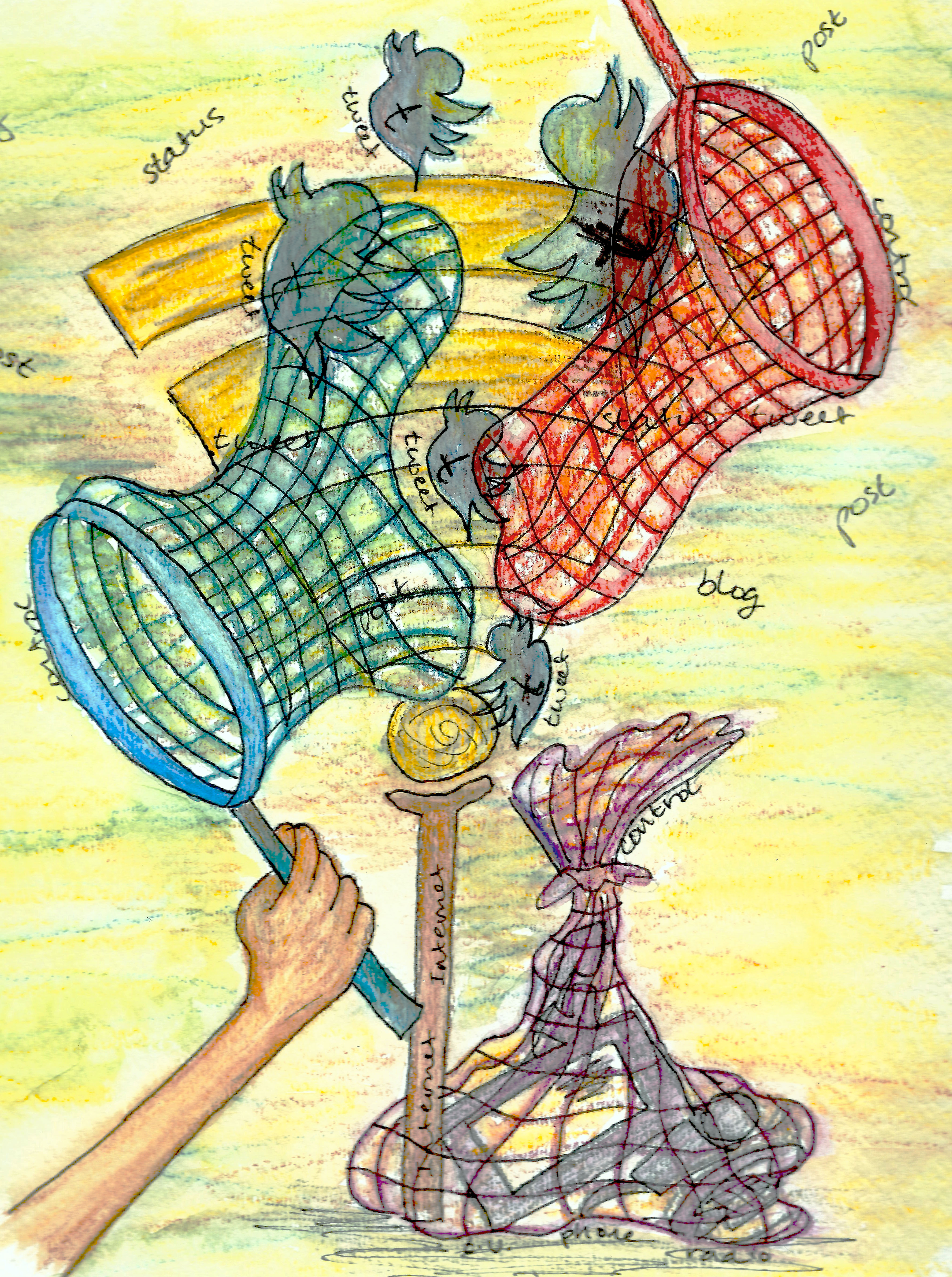
The basis of US politics has come to strikingly resemble the computer binary system. Our political dialogue has come to take the ideological authority of the two-party duopoly as given, and our political rhetoric has become black and white: Democrat or Republican, progressive or conservative, big government versus small government. That’s right, the two-party system is not a spectrum. Indeed, far from it, it seems to be a world of “yes” and “no,” ones and zeros: Washington politicians spout off litanies of “balanced” or “unbalanced” opinions, and we call for bipartisan agreements, both sides of an issue, balanced panels and views that incorporate “the other side.”
Like the Gutenberg printing press before it, the Internet has decentralized the means by which societies create ideas, taking them out of the hands of the rich and powerful who own or disproportionately influence the means of creating and distributing information. The Gutenberg printing press entered during the era of European reformation, which was marked by intense religious and political polarization. The printing press made information widely available and cheap, allowing Lutherans a greater deal of influence over, for instance, other Protestant reform movements and contributing to the waves of Biblical reinterpretations being undertaken throughout Europe. The Internet also makes vast troves of information rapidly available and cheap — if not free — to disseminate and transcends national and regional boundaries. In being so widespread, the Internet encourages political dialogue and analysis on subjects not entertained by mainstream media. In theory, if you have an opinion and a laptop, you have a voice.
In the United States, control of mainstream media rests in the hands of a minority of the population. According to Business Insider, six major companies controlled 90 percent of US media in 2012. Even small media outlets that may seem independent from outside pressures still have a list of wealthy, powerful stakeholders financing their operations. Furthermore, as Noam Chomsky points out, in as early as 1986 “news dispensers were…dependent on the large national companies and wire services for all but local news.” Even if the very wealthy and powerful don’t directly own publications, they still have a strong influence over media.
Corporate media not only reflects the duopoly the American two-party system has created but has helped deepen it. Politicians benefit from oligopolistic control of the media because it presents voters with limited ideological choices. If the population is busy arguing over the influence of big lobbyists, for example, by bashing one party and supporting the other, they might not notice that the two sides are not really that different, especially when an increasingly partisan media focuses more on highlighting differences than balanced comparisons. The influence of third-party voices is easy to curb when media sources on the left and right are busy pointing fingers at each other for shortcomings in government policy. At a time when American mainstream media, the people’s “watchdog,” has become increasingly tethered to a partisan and corporate leash, the Internet gives ordinary people an easily accessible platform and becomes the watchdog’s watchdog, which threatens the political duopoly.
At a time when US mainstream media, the people’s “watchdog,” has become increasingly tethered to a partisan and corporate leash, the Internet gives ordinary people an easily accessible platform and becomes the watchdog’s watchdog, which threatens the political duopoly. Ensuring this consolidation of power is more difficult when people who don’t agree with the mainstream political perspectives have an easier time debating, organizing and campaigning. The Internet’s lack of operating costs challenges a structure in which, according to Chomsky, “only the corporate sector has the resources to produce public information and propaganda on the scale of the Pentagon and other government bodies.” And when anyone can make a blog, post a Facebook status or write an article, everyone influenced by that individual’s opinion has an easier time taking unified action. The world does not change with one Facebook “like,” but national protest movements have been able to amass large crowds for their causes using this technology.
The free exchange of ideas has always benefited from the easiest, most efficient way to distribute information possible. In the fifteenth century, the printing press broke the Catholic Church’s monopoly over knowledge and the dispersion of information in Europe. Thanks to the Internet, we might be starting to see the very first examples of a similar process in the United States.
Occupy Wall Street is the preeminent example of the Internet’s potency to disseminate the decentralizing ideals of a movement. The Occupy movement inserted a number of new ideas into national political dialogue: Protestors hailed from such ideological bases as utopianism, socialism, anarchism, communism and populism. By circulating information about activities and updates in real time and wrangling in supporters with Twitter and Facebook, Occupy managed to attract masses of people much faster than it would have been able to otherwise. Internet usage also facilitated the exchange of dialogue on issues relevant to the protestors’ concerns, effectively drawing in more perspectives that may have otherwise been silent. While the movement did not succeed in changing the ideological foundation of the entire country, it certainly created a populist dialogue of “the 99 percent” that has been adopted by many left-wing organizations.
More recently, the National Moment of Silence, an anti-police brutality campaign started in response to of Michael Brown’s death in Ferguson, organized a nationwide memorial service for victims of police brutality using social media. By posting information about their events on Facebook and Twitter, the movement amassed a nationwide following with relatively short notice, staging silent vigils in most major cities in the country at the same time. The memorials helped call attention to issues of police practice that are especially detrimental to minority communities of the United States. In this case, the Internet, through social media, gave leverage to the movement and opportunities for activists to include the people most affected by the issue at hand. This type of national mobilization made possible by social media will make it harder for Washington to ignore a widespread mood throughout the nation.
While Occupy’s use of the Internet and social media is better known, movements on the right have been quick to capitalize on the Internet as well. Tea Party activists pride themselves on using the Internet to oppose President Obama and the Democrats. Faster communication, vis-à-vis smartphones and social networks, meant they could organize rallies quickly. The relative simplicity of setting up a website allows for Tea Party activists across the country to spread their message. The Tea Party movement is not just a resistance to Democrats, but also a response to the mainstream, “centrist,” Republican Party. In this case, dispersed information and easier mobilization techniques have made it harder for the establishment to keep a steady grip on its support base.
On the other hand, the Internet does not change the historical circumstances in which social change is embedded. It only stimulates underlying social issues and brings movements and issues to the forefront by making ideas easy to spread and collective actions fast to organize. The Internet and social media did not cause unrest in Egypt during the Arab Spring, for instance, but rather, the complex history of the region did. However, the Internet is a new tool that facilitates the spread of revolutionary ideas and plans. While the Internet does not change people’s histories, it has the potential to change their preferences by shaping how they express those preferences and expand the availability of a non-mainstream way to deal with those preferences. Given proper Internet usage, as demonstrated during the Arab Spring, it becomes exponentially easier to mobilize large numbers of people in favor of any given cause, impacting the way those social movements come to pass.
The Internet is a strong message to the Democrats and Republicans alike: It may become increasingly difficult for the political duopoly to control the means by which people form and express ideas. One day, the duopoly might need to consider a multiplicity of policy perspectives to appease its stakeholders, not just “the one” or “the other.” This would question the foundation of worldviews that are partisan at worst and duopolistically bipartisan at best.
